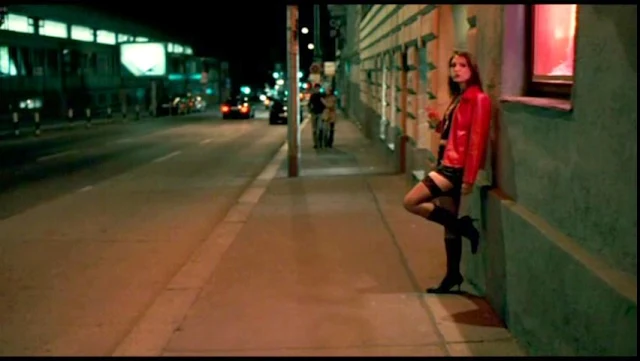 |
| Julie Delpy and Ethan Hawke in Before Sunrise |
If there were any justice, Before Sunrise would have transformed the genre of romantic comedy by showing them all how it should be done. Granted, the film neatly transcends the genre, even though it starts with the hoariest of all its formulas: the meet-cute. But by the film's end, we have gotten to know Ethan Hawke's Jesse and Julie Delpy's Céline as we never get to know the characters in the conventional romcom. And then the film does something those conventional ones never do: It stops. There's no rush through the streets by lovers who've decided to reconcile. There are no hilarious exchanges of marriage vows. The movie doesn't tell us if Jesse and Céline ever meet again after he takes his plane to the States and she takes her train to Paris. Granted, the sequels do this, but think how tonic this first film in the trilogy was when it was first released. (And even the sequels don't behave like sequels, but that's another post entirely.) It's hard to undervalue how revelatory Before Sunrise was at the time. For one thing, it established Hawke as one of the best and smartest young actors of his day, taking him out of the "pretty boy" category into which he started to fall after his first big hit, Dead Poets Society (Peter Weir, 1989). It also established Richard Linklater as a director of intelligence, with an interest in the effects of time on personality that culminated in his masterpiece, Boyhood (2014). That the film didn't do as much for Delpy's career is probably more evidence that women don't have the same influence in movies as men. (She also revealed later that she wasn't paid as much as Hawke until the third film in the trilogy, Before Midnight, in 2013.) Delpy and Hawke also rewrote a good deal of the screenplay without credit.










